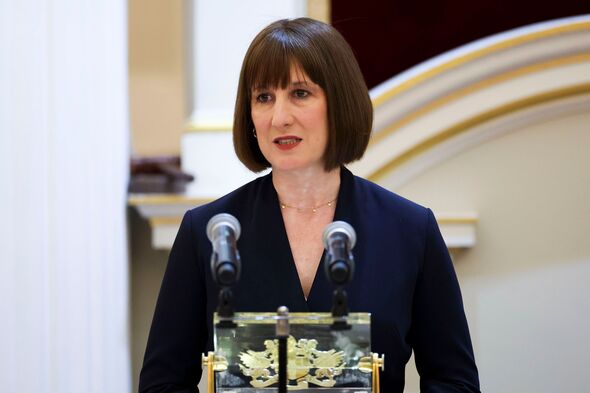
Finance experts have rejected claims by the Prime Minister that the budget has not played a part in pushing up the cost of home loans.
A number of banks and building societies have raised interest rates on fixed rate mortgages in recent days despite the fact that the Bank of England recently cut the base rate by a quarter point to 4.75 percent.
The increase in the cost of mortgages is linked to the fact that interest rates at which finance companies lend to one another – the so-called swap rate – have risen in the past two weeks.
Earlier today, the governor of the Bank of England, Andrew Bailey, confirmed that the Rachel Reeves budget is a factor in predictions that inflation and interest rates will be higher than was previously expected. He also pointed to the fall-out of Donald Trump’s re-election in the USA.
Stephen Perkins, Managing Director at Yellow Brick Mortgages, said it is wrong for Sir Keir Starmer to argue the Budget is not, at least partly, responsible for higher mortgage rates.
He said: “The PM can live in denial all he wants, but the Autumn Budget single-handedly caused mortgage rate increases we’re now seeing. This is a perfect example of cause and effect.
“Even before the National Insurance and minimum wage increases have had a direct impact, lenders have amended their forecasts for medium-term borrowing costs and increased their mortgage rate offerings despite the expected base rate reduction.
“With the base rate now no longer expected to drop again until next year and inflation projected to rise again, lenders don’t want to be left out in the cold this winter.”
Mark Eaton, the chief operating officer at April Mortgages, told Newspage: “The government’s recent Budget has had a direct impact on the financial markets, pushing up swap rates and subsequently driving mortgage rates higher. This policy shift has created additional challenges for borrowers already navigating an uncertain economic climate.”
And Mark Scott, Director and IFA at Positive Advisers Ltd, complained: “Inflation is set to increase so rates will have to stay higher for a lot longer. The economy was stable and their Budget decisions mean rates now need to remain high. Inflation will keep interest rates high.
“The Labour government has enacted inflation-increasing policies over and over again: inflation busting pay rises to public sector workers, above inflation increases to the minimum wage, increased costs to business via increased NI, which will put up costs of goods and services, along with lots of extra borrowing.”
Graham Cox, Director at Bridging Hub, said: “There is little doubt that the Budget caused swap rates to increase and therefore mortgage rates to go up. So the PM is wrong. However, it’s nothing like as bad as we saw under Liz Truss and no doubt the markets will settle down again.”
Rohit Kohli, Director at The Mortgage Stop, joined the attack, saying: “The Prime Minister can deny it all he wants but the reality is that his government’s Budget has not just sent mortgage rates north but has also undermined food security and business confidence.
“Just like the previous government, this one takes zero responsibility for its actions and appears blinkered to real-world impact of its decisions.”
While the cost of new mortgages has risen in recent days, there are hopes that there will be gradual reductions through 2025.
Jack Tutton, Director at SJ Mortgages, said: “Labour’s new policies have spooked the markets with fears inflation will be on the rise again. All we have seen since is mortgage rate rises meaning yet more misery for borrowers.”
Simon Bridgland, Director at Release Freedom, criticised the chancellor Rachel Reeves, saying: “Can the country’s top economist not see what an Ebenezer she has become? She is financially hurting those she needs to protect.
“Fixed rates keep rising as markets reel from Labour’s fiscal moves.”
Justin Moy, Managing Director at EHF Mortgages, said: “All the work on reducing mortgage rates and improving confidence across the UK population seems to unravelled in just a few short weeks, yet the Prime Minister is blinded by the reality of what’s going on around him.”
Some advisers said Labour should be given room to allow its policies to play out. Amit Patel, Adviser at Trinity Finance, said: “Labour have been in office less than six months and they can’t be expected to wave a magic wand and make all the economic woes the UK has faced over the past 14 years magically disappear.
“Tough decisions have to be made, similar to what the Conservatives did back in 2010. No matter which Government we have in power they will each make decisions which not everyone will agree with.”


















